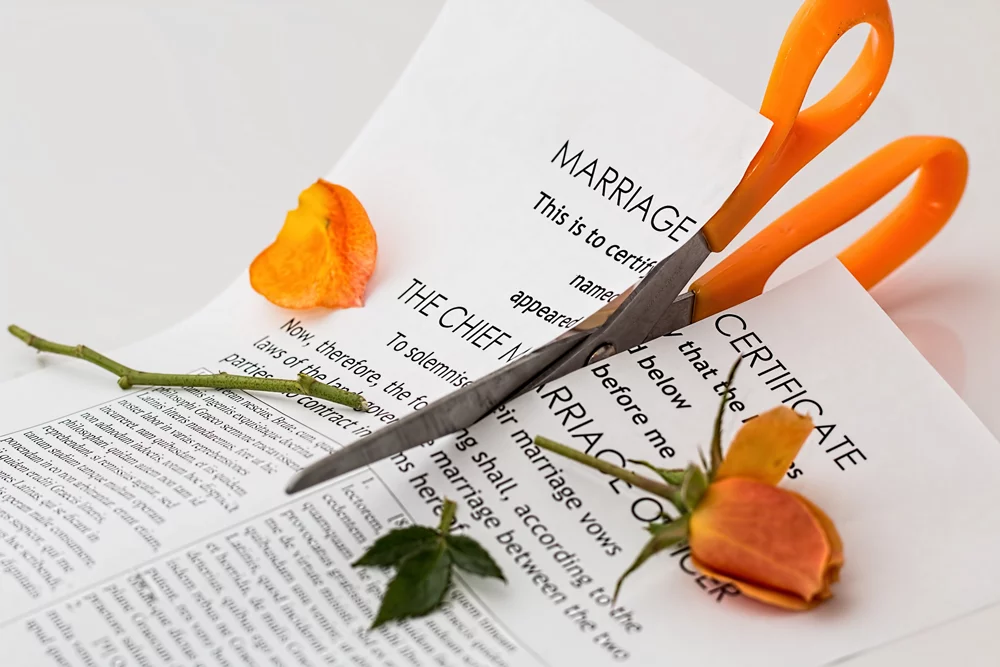Companion article to “Does Equal Marriage = Equal Divorce?”
Whether you are about to get married or about to get divorced, if you are a member of the LGBT community there are some critical points of which you must be aware that are completely unique to you as a same-sex marriage partner.
• LGBT divorce and marriage
• Same sex divorce and marriage
• Gay divorce and marriage
• Lesbian divorce and marriage
My name is Andrea Morgan and I represent members of our LGBT community here in Orlando, Florida as not only a divorce lawyer, but as a coach, consultant, and mediator.
I am also actively involved with the LGBT community as a member of organizations such as the Central Florida Gay and Lesbian Law Association (CFGLLA) and the Metropolitan Business Association Chamber of Commerce of Orlando (MBA).
In order to understand the critical points in this article, you first need to understand how the effect of Florida divorce law impacts same-sex spouses differently (and unequally) than straight spouses.
Learn more about my LGBT and same-sex divorce support services
If you and your spouse were in a committed relationship before you were given the legal right to marry (which was 2015 in Florida), as of this writing, Florida divorce law does not bestow the same rights and obligations on LGBT spouses in the areas of property division, alimony, and child custody. [1]
LGBT Divorce & Property Division:
In disputes involving property division, the judge in your case must strictly follow Florida law that defines marital assets and debts as property and debts acquired from the date of the marriage (in the absence of a separation agreement) until the date the divorce petition is filed.
Section 61.075(7), Florida Statutes says:
“The cut-off date for determining assets and liabilities to be identified or classified as marital assets and liabilities is the earliest of the date the parties enter into a valid separation agreement, such other date as may be expressly established by such agreement, or the date of the filing of a petition for dissolution of marriage.”
How does this law affect you differently if you are in a same-sex marriage?
Consider for example that one spouse, with whom you were in a committed relationship for many years before your marriage, purchased a million-dollar piece of real estate before you were allowed to be married in 2015. This real estate would be considered non-marital property under Section 61.075(7), Florida Statutes.
Thus, the other spouse would be completely excluded from any division of this asset.
Contrast this result with a straight couple, who has been together for the same amount of years as you and your now-spouse. The only difference is the straight couple had the right to marry for the entire time they were a couple.
In this instance, the straight spouse would be entitled to an equitable distribution of this asset, which would generally be calculated as fifty percent of its value.
LGBT Divorce – Spousal Support/Alimony:
The issue of spousal support is also complicated in LGBT marriages where you and your spouse were together for many years before you were given the legal right to marry.
Whether or not your marriage is same-sex, a Florida couple should be married for at least seven years to qualify for durational alimony (alimony for a set period of years), and 17 years or more to qualify for permanent alimony (alimony forever until the receiving spouse dies, remarries, or is found to be in a supportive relationship).
Section 61.08(4), Florida Statutes says:
“For purposes of determining alimony, there is a rebuttable presumption that a short-term marriage is a marriage having a duration of less than 7 years, a moderate-term marriage is a marriage having a duration of greater than 7 years but less than 17 years, and long-term marriage is a marriage having a
duration of 17 years or greater. The length of a marriage is the period of time from the date of marriage until the date of filing of an action for dissolution of marriage.”
So what happens if you were in a committed relationship with your spouse for ten years before you were given the right to marry in 2015?
The black letter law today would conclude you were “married” less than seven years; thus, there would be no legal presumption for an award of spousal support.
On the other hand, Florida Statutes 61.08(2)(a) – (j), gives Florida judges latitude in alimony cases to consider ten other factors. [2] As it affects same-sex couples, section 61.08(2)(j) is particularly important. It provides that when ruling on alimony, the trial court may consider:
“Any other factor necessary to do equity and justice between the parties.”
Therefore, whether you are the spouse looking to receive alimony or the spouse looking to avoid paying it, a request for alimony at trial before a judge when you are a member of the LGBT community is little more than a crap shoot as far as what you can hang your legal hat on.

Child Custody & LGBT Divorce:
Yet another legal category where Florida laws fall differently on married members of the LGBT community than those of the straight community is your children.
Whether you are in a same-sex marriage or not, if you and your spouse can both truly focus on what is in the best interests of your children and set your adult marital differences aside, you can work together to create a parenting plan that avoids a war over your children in a court of law.
Believe me when I say it is your children who will ultimately suffer the most if you do not do this. And the effects on your children can be lasting or permanent.
If you are going through a divorce with children, Mom’s House, Dad’s House: Making Two Homes for your Child, by Isolina Ricci, Ph.D., is a must-read whether you are same-sex co-parents or not.
Through sometimes painful-to-read case studies about the trauma high conflict has on children, this book will thoroughly educate you and your spouse on how to work through your conflicts so your children’s emotional health will not suffer.
For LGBT couples who started a family before they were allowed to legally marry, Florida law has not 100 percent caught up to the real-time issues facing that family during divorce.

If you were living in any of the 13 states which disallowed equal marriage before 2015, it was nearly impossible to adopt because the union between LGBT co-parents was not a legally recognized union.
If the non-biological parent never legally adopted the children, Florida law would have disallowed parental rights to the non-biological spouse before 2015, including visitation and time-sharing.
Because marriage equality is relatively new, it is impossible to predict how any given judge will rule on a case where a child is the biological offspring to only one of the LGBT co-parents and the child has not been legally adopted by the non-biological spouse. This is particularly true in LGBT paternity cases where co-parents are not married.
Contrast this with straight divorce cases, where Florida law presumes the husband to be the father of the children, and does not require the husband to prove he is the biological father (unless the wife specifically challenges parentage).
I am a gay fiancee’. How can I protect myself?
If you are about to tie the knot with your same-sex BF or GF (or recently have already), the way you head off the potential land mines I’ve described here is with a well-drafted pre-nuptial or post-nuptial agreement.
Whether it’s before or after your wedding date, sit down with a family law attorney who is well-versed on LGBT divorce issues, and be sure to cover the following areas at a minimum:
- Which assets belonging to you and/or your spouse will be marital, and which will be non-marital?
- Which debts belonging to you and/or your spouse will be marital, and which non-marital?
- Will there be a lump-sum marital property value assigned in the event of divorce?
- What factors, if any, will be considered for alimony in the event of divorce?
- Will there be a lump-sum, periodic or permanent alimony amount in the event of divorce? If so, how much and when will it be paid? If periodic, for how long?
- If you have or intend to have children during the marriage, will the non-biological parent adopt the child/ren?
- Who will be responsible for what costs associated with raising the children during the marriage?
- In the event of divorce, who will be the majority-time-share parent, and who will be responsible for child support? Will child support be the minimum under Florida’s guidelines, or will a greater amount be agreed upon? Will there be higher education, and if so, who will be responsible for which costs?
- What legal process will be used in the event of divorce? Divorce mediation, cooperative divorce, or collaborative divorce?
The above considerations are just the touchstone. There are countless additional provisions that may be appropriate or necessary in your pre-or post-nuptial agreement. Be sure that the unique and individual circumstances of both you and your betrothed are taken into careful consideration before you sign on the dotted line.
I am going to be a gay divorcee’. How can I protect myself?
If you are married but a divorce seems likely or is looming, a well drafted separation agreement is the best way to put on ice some critical issues.
A separation agreement should detail in writing how housing, financial and child issues will be handled pending your divorce becoming final, in other words, on a temporary basis.
If you do not already have a pre- or post-nuptial agreement, a separation agreement can also detail how property division and settlement, alimony, child-support and time-sharing issues will be handled on a permanent basis.
Take note that agreeing on the permanent details of your divorce before your divorce is even started is the most desirable (and cheapest) divorce scenario of all!
If you and your spouse are anywhere close to being able to communicate on critical divorce issues, it may be possible to settle your divorce before you even begin.
In this instance, your separation agreement effectively becomes your marital settlement agreement. If you and your spouse can accomplish this, you will save yourself miles of stress from uncertainty. Your wallet will thank you, too.
Whether you are settling your temporary or permanent divorce issues, be sure your separation agreement makes provision for what type of divorce process you and your spouse will use.
As I describe in detail in my article “Does Equal Marriage = Equal Divorce?”, LGBT members are wise to use any of the alternative dispute resolution methods to resolve their divorce case because of the unequal impact of current Florida divorce laws.
Conclusion
When an LGBT marriage ends badly, the axe can swing both ways on the unequal application of Florida divorce law. In other words, what is an unfair statutory reality for one spouse will be the same statute that gives a legal advantage to the other spouse.
To avoid the uncertainty of outcomes regarding property and debt division, alimony, and issues regarding your children, the best way to safeguard your rights and obligations as a same-sex spouse before or after your wedding is through a pre- or post-nuptial agreement. A well-drafted marital agreement will bring clarity to issues that will be nebulous (therefore expensive) to litigate in divorce court.
If you are a same-sex spouse who believes your marriage is ending and divorce is inevitable, the best way to solidify these same issues before your case is filed is through a clear and concise separation agreement.
A separation agreement will outline how critical matters will be handled pending your final divorce decree. Better yet, a separation agreement can be turned into a pre-divorce marital settlement agreement that effectively ends your divorce before it even begins. [3]
In either case, always be sure to make provision for the process you will use should a divorce be inevitable. For members of the LGBT community, it is highly advisable to proceed with divorce mediation, cooperative divorce, or collaborative divorce to remove the legal uncertainties that exist under current Florida divorce laws.
 Reviews
Reviews 
